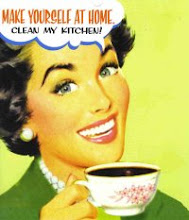Murray's book focuses largely on the bureaucracy and why they have become an increasing threat to our freedom and our pocketbooks. Bureaucrats have a huge incentive to increase costs. In government, a bureaucrat's success -- his pay raises and promotions -- is determined not by solving problems but by finding more problems to justify ever larger budgets and staff. Murray, a Brit by birth, saw this first hand when he went to work for the Department of Transport. "In government, performance is judged by increases in funding. The cost-cutting boss is viewed with suspicion, even outright hostility, by his peers, as letting his side down," Murray, who works at the Competitive Enterprise Institute, writes. The success that the political class has had is evidenced by the fact that the wealthiest Congressional District in America is not in Manhattan or Beverly Hills, but in Northern Virginia. It is Virginia's 11th District, a suburb of Washington, D.C. that is home to many top-level federal workers. The district has a median household income of $80,397, nearly double the national average of almost $42,000. Bureaucrats are now paid, on average, more than the private sector, have top-notch health and retirement benefits, and virtually iron-clad job security. The justification for this is that such people are in "public service" and good wages and benefits are needed to attract good people. But it is a myth that so-called public servants are any less self-interested than anyone else. Indeed, they often serve themselves at the expense of the public. Murray provides numerous examples, from the federal down to the local level. One agency that looks like a disaster waiting to happen is the Transportation Safety Administration. "TSA is a reactive security operation, always fighting the last battle. Yet it doesn't even fight those battles particularly well," Murray writes. Post 9/11, TSA failed to detect Richard Reid, the shoe bomber, and Umar Farouk, the underwear bomber, both of whom were fortunately subdued by passengers on their planes. But TSA's failure means more inconvenience for passengers, as we now have to take off our shoes and go through either body-scan machines or pat downs on our private areas. Despite this, testing has found that TSA screeners may miss up to 60%-75% of simulated explosives. Testing at airports that employ private security companies perform much better, with a failure rate of 20 percent. The reason is that screeners from private companies "know they will be picked on with constant covert tests and are therefore 'more suspicious.'" TSA has grown into a 67,000-employee bureaucracy, and in February of this year the Obama administration gave TSA the right to unionize. A unionized TSA could mean even more headaches for travelers as unionized government employees are nearly impossible to fire and union contracts tend to favor pay scales based on seniority rather than performance. Some members of Congress have urged airports to take their "opt-out" option and hire private security firms. But that requires TSA approval, and like any bureaucracy protecting its turf, the agency has declared that "unless a clear and substantial advantage to do so emerges in the future, the requests will be denied." TSA Administrator John Pistole has said that he doesn't think there's any advantage to private security firms. On the local level, there is no better example in Murray's book of the lengths to which a union will go to get its way than the Uniformed Sanitationmen's Association in New York City. A major blizzard hit New York in December 2010. Wanting to send a message to the mayor about staff cutbacks and reduction in the ranks of supervisors, union heads told snow crews go slow in snow cleanup. Several neighborhoods such as Borough Park and Middle Village were targeted for poor snow removal since the residents there are wealthier and have more influence with their politicians. This may have led to the death of one three-year-old boy as the ambulance could not get to him in time. However, priority cleanup was given to the neighborhoods of agency heads and other city bigwigs.Full Disclosure - This is actually another shameless attempt on my part to promote my husband's book (which makes an EXCELLENT Christmas present by the way) in order to boost sales so I can finally replace my 25-year-old stove and carpeting.
Tuesday, December 13, 2011
Excellent Review of "Stealing You Blind"
A great review of "Stealing You Blind. How government fat cats are getting rich off of you." from The American Spectator.
The Grinches Who Stole Christmas
Subscribe to:
Post Comments (Atom)




No comments:
Post a Comment